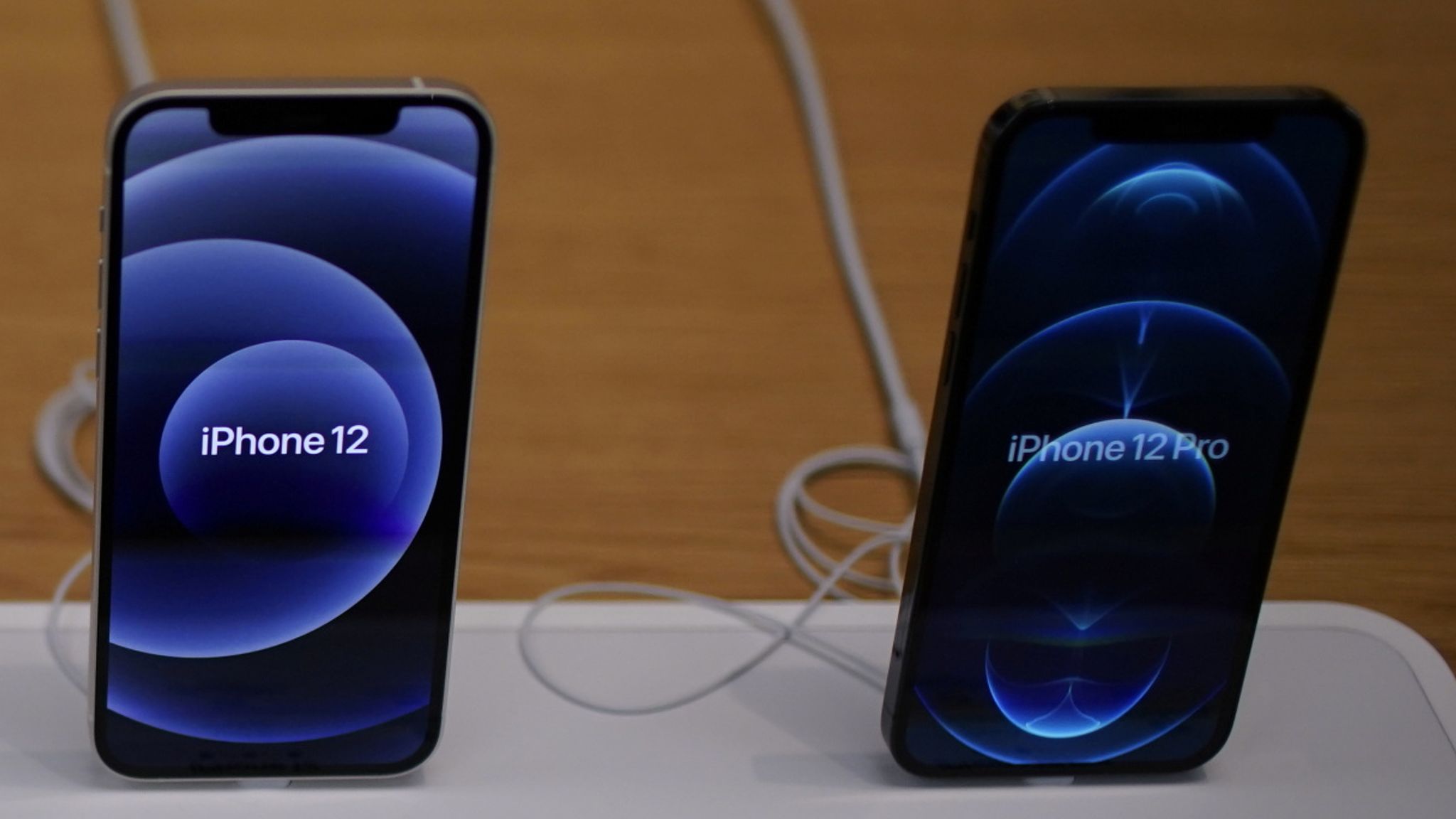
France’s radiation watchdog has prohibited the sale of Apple’s iPhone 12 following testing that revealed the smartphone exceeded European radiation exposure guidelines.
According to the Agence Nationale des Frequences (ANFR), the model’s Specific Absorption Rate (SAR) – a measure of the rate of radiofrequency energy absorbed by the body from a piece of equipment – was greater than legally allowed.
According to Jean-Noel Barrot, France’s junior minister for the digital economy, a software update could resolve the issue. If Apple does not remedy the issue, the ANFR said it will order a nationwide recall of the gadget. Apple denies the watchdog’s findings, claiming that the iPhone 12 has been validated by various international organizations as meeting global radiation guidelines.
What exactly is SAR?
The term “Standard Absorption Rate” refers to the amount of energy absorbed by the body from any radiation source. It’s measured in watts per kilogram of body weight.
Mobile phone radiation is caused by the way they work, which is to transmit radiofrequency waves, which create electromagnetic fields. Phones, unlike X-rays or gamma rays, which are created by radioactive decay, cannot break chemical bonds or induce alterations to cells in the human body, which might eventually cause harm like cancer.
What has ANFR determine?
The ANFR stated that it recently conducted random testing on 141 phones purchased from stores, including the iPhone 12. According to the Office of the Digital Minister, two iPhone 12s failed independent laboratory tests and did not meet EU criteria.
According to the report, smartphone radiation tests have resulted in 42 sales bans across the country.
How perilous is it?
The primary problem produced by a phone’s “non-ionizing” radiation is the heating of bodily tissue. According to the International Commission on Non-Ionizing Radiation Protection (ICNIRP), an organization that establishes guidelines for the limits globally, exceeding defined limits might result in health problems such as burns or heat stroke, depending on the duration of exposure.
The primary problem produced by a phone’s “non-ionizing” radiation is the heating of bodily tissue. According to the International Commission on Non-Ionizing Radiation Protection (ICNIRP), an organization that establishes guidelines for the limits globally, exceeding defined limits might result in health problems such as burns or heat stroke, depending on the duration of exposure.
According to the ANFR, certified labs discovered a SAR of 5.74 watts per kilogram during tests of the iPhone 12 held in hand or kept in a trouser pocket. The European Union standard is 4.0 watts per kilogram. However, according to ICNIRP chair Professor Rodney Croft, this poses no harm to human health.
According to the WHO and other international health organizations, there is no conclusive evidence that mobile phone radiation causes other negative health impacts. It has, however, urged for additional research.
The International Agency for Research on Cancer (IARC) classified mobile phone radiation as “possibly carcinogenic” (class 2B) in 2011. When the agency cannot rule out a potential link, this label is utilized. The agency stated that there was “limited” evidence of an elevated risk of brain tumors in some, but not all, of the available research – notably for “heavy users” – but that it could not rule out bias or inaccuracies in the data, which meant no conclusions could be formed.
How has Apple reacted to the iPhone 12 ban in France?
According to the ANFR, a software update should be sufficient to resolve the problem.
This is because the software – the apps, programs, and other operational information that run on a device – influences how the hardware (the device) operates. As a result, a software update should be sufficient to lower SAR exposure in iPhone 12 users.
Apple, on the other hand, has contested the agency’s findings. The business stated that it had provided ANFR with various Apple and independent third-party lab findings demonstrating compliance with all applicable SAR legislation and standards worldwide.
Apple stated that it would protest the conclusions of the ANFR examination and would continue to work with the agency to demonstrate compliance.






